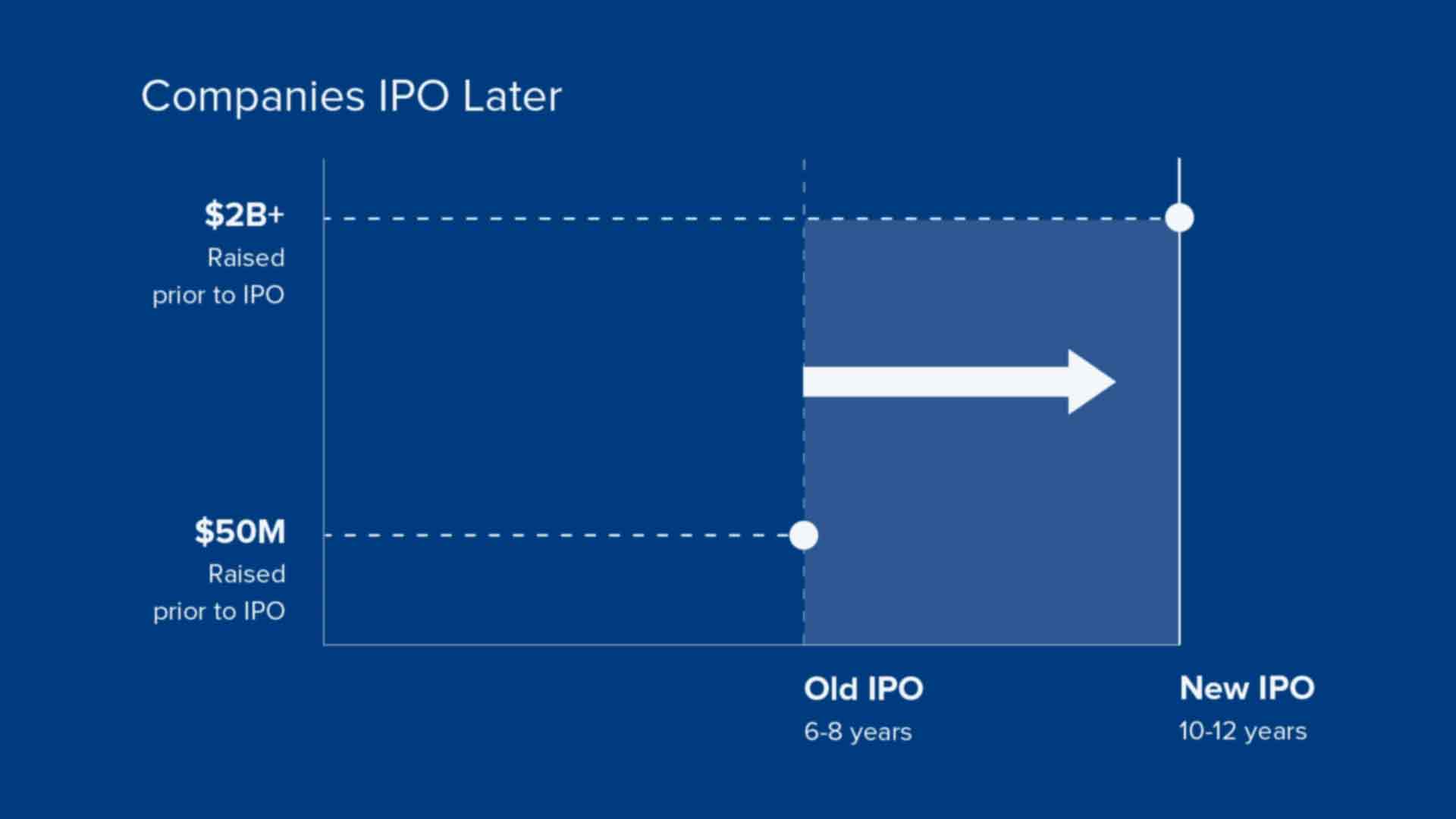| | | | | | | Presented By OurCrowd | | | | Axios Future | | By Bryan Walsh ·May 19, 2021 | | Welcome to Axios Future, where I can't be the only one who thinks it's not a coincidence the cicadas and the aliens are arriving at the same time. Today's Smart Brevity count: 1,827 words or about 7 minutes | | | | | | 1 big thing: Drones set off a land rush in the sky |  | | | Drone light show promoting Genesis luxury car brand's arrival in Shanghai. Photo: Genesis | | | | Commercial drones have barely taken off, but there's already a fight brewing over who will control — and potentially profit from — the airspace in which they'll fly, my Axios colleague Joann Muller writes. Why it matters: Communities and companies right now are hashing out the rules and norms that will shape where and how drones transform the skyscape over the next decade. The big picture: Drones are already used by the military, but they could transform daily work across a host of industries, from insurers inspecting storm damage to retailers delivering packages. They can also perform choreographed light shows or display digital billboards in the sky. Yes, but: As with other innovations like self-driving cars, drone technology is advancing faster than the legal framework meant to regulate it. - The Federal Aviation Administration only recently issued rules allowing small drones to fly over people and at night. But they still can't fly beyond the line of sight of the operator.
- That renders the drones fairly useless to most businesses — unless they can obtain a waiver, which the FAA decides on a case-by-case basis.
With the federal government moving slowly, some state and local lawmakers want to set their own rules. - Just as communities can limit someone from riding a skateboard on the sidewalk, local officials argue they should be able to set rules about flying a drone over their community.
- Texas, Louisiana, Mississippi and West Virginia are among states proposing laws that would charge fees to lease airspace directly above public roads —essentially creating "toll lanes" in the sky.
The drone industry strongly objects, saying the FAA should have sole responsibility for managing airspace throughout the U.S. - "This is a nascent industry, with huge opportunities for growth. If you start taxing it before it gets off the ground, you're going to kill it," says Michael Robbins of the Association for Unmanned Vehicle Systems International.
The intrigue: The question of legal jurisdiction over drone airspace is not quite so cut and dried, however, according to a September 2020 report from the Government Accountability Office (GAO), a nonpartisan federal agency that serves as the investigative arm of Congress. - The FAA claims responsibility for air safety "from the ground up," including drone operations, the report notes.
- Yes, but: A 1946 decision by the U.S. Supreme Court related to low-flying airplanes found that a landowner "owns" and has "exclusive control" of the "immediate reaches" of airspace over his property.
- With drones expected to fly below 400 feet, the legal questions are unresolved, GAO found.
The bottom line: Public safety is at stake over these open questions, but so is the freedom to gaze upward and not be disturbed by buzzing machine swarms or assaulted by aerial ad images. |     | | | | | | 2. Aerospace control goes quantum |  | | | Illustration: Aïda Amer/Axios | | | | Quantum computing could help organize the increasingly crowded air and orbital space above us. Why it matters: One of the major advantages of quantum computers is their superior ability to master optimization problems, and that will be increasingly needed both to design better air and spacecraft and to plot their flight paths for safety and efficiency. What's happening: While the pandemic may have led to empty skies, the longer-term future will be one of growing air and space traffic. - "A couple of years ago, we weren't thinking about millions of drones flying autonomously and bringing you coffee or medical supplies or packages," says Thomas d'Halluin, managing partner at Airbus Ventures, the independent venture investment arm of aerospace company Airbus SE.
- "And every single day this is becoming a reality, and this is a real optimization problem."
Details: Governing millions of objects in three-dimensional air and space is fiendishly complex, but "these are the things that quantum computers can do in their sleep," says Peter Chapman, CEO of quantum computing company IonQ. - Quantum computers also have the ability to simulate reality at its most fundamental level — the quantum one itself — so they can also aid in designing more efficient aircraft, spacecraft, batteries and more.
The catch: As with all real-world quantum computing applications, the technology will need to improve before it can be trusted with something as vital as air and space traffic control. - Still, notes Chapman, as quantum algorithms improve, the number of stable qubits — the basic unit of quantum computing — needed to carry out complex applications is dropping.
"Quantum will definitely be a key enabler to safer and more sustainable aviation in the aerospace industry." — Thomas d'Halluin, Airbus Ventures |     | | | | | | 3. The disinformation threat from text-writing AI |  | | | Illustration: Eniola Odetunde/Axios | | | | A new report lays out the ways that cutting-edge text-generating AI models could be used to aid disinformation campaigns. Why it matters: In the wrong hands, text-generating systems could be used to scale up state-sponsored disinformation efforts — and humans would struggle to know when they're being lied to. How it works: Text-generating models like OpenAI's leading GPT-3 are trained on vast volumes of internet data, and they learn to write eerily life-like text off human prompts. - In their new report released this morning, researchers from Georgetown's Center for Security and Emerging Technology (CSET) examined how GPT-3 might be used to turbocharge disinformation campaigns like the one carried out by Russia's Internet Research Agency (IRA) during the 2016 election.
What they found: While "no currently existing autonomous system could replace the entirety of the IRA," algorithmically based tech paired with experienced human operators produces results that are nothing less than frightening. - Like many other automation and AI technologies, GPT-3's real power is in its ability to scale, says Ben Buchanan, director of the CyberAI Project at CSET and a co-author of the report.
- GPT-3 "lets operators try a bunch of variants on a message and see what sticks," he says. "The scale might lead to more effective feedback loops and iterations."
What to watch: While OpenAI has tightly restricted access to GPT-3, Buchanan notes that it's "likely that open source versions of GPT-3 will eventually emerge, greatly complicating any efforts to lock the technology down." - Researchers at Huawei have already created a Chinese-language model at the scale of GPT-3 and plan to provide it freely to all.
- Because identifying the latest computer-generated text is difficult, Buchanan says the best defense is for platforms to "crack down on the fake accounts" used to disseminate misinformation.
The bottom line: Like much of social media more broadly, the report's authors write that systems like GPT-3 seem "more adept as fabulists than as staid truth-tellers." Share this story |     | | | | | | A message from OurCrowd | | Launchpad empowers $55 billion small-line manufacturing industry | | |  | | | | AI-powered autonomous manufacturing using 3D printing enables Launchpad to rapidly create complex products from customer designs. Its backers include IdeaLab, the startup incubator behind over 150 innovative companies. And you can join them. Explore OurCrowd's Launchpad opportunity. | | | | | | 4. The importance of trust in the hybrid work age |  | | | Illustration: Aïda Amer/Axios | | | | Executives managing the post-pandemic age need to focus on building trust with their employees — and vice versa. Why it matters: As both managers and workers try to navigate the confusing politics of work in the aftermath of COVID-19, companies that fail to honor the autonomy of workers by simply forcing them back to the office will struggle to thrive. Driving the news: Last week, WeWork CEO Sandeep Mathrani made headlines when he said at a Wall Street Journal conference that the most engaged employees at companies are the ones who want to go back to the office, while "those who are least engaged are very comfortable working from home." But, but, but: Forcing a return on unwilling employees would be a "really serious mistake," Gallup CEO Jim Clifton tells Axios. - "You have to have some kind of strategy that considers the individual," he says. "There's no one CEO decision where you can clap your hand down and say, 'OK, that's how we'll work.'"
Between the lines: Jim Harter, Gallup's chief scientist of workplace and wellbeing, notes that as workers reevaluate their careers nearly a year-and-a-half into the pandemic, "the highest engagement we've seen in retention is in a hybrid space." - "That relates back to the importance of autonomy," he says. "The key to managing is to honor the autonomy, but still have accountability."
- To do that, executives need to cultivate an atmosphere of trust in their companies, and "trust is built through the fundamentals of work, people knowing their role, people having a chance to do what they do best," says Harter.
What to watch: WeWork's Mathrani apologized for his comments in a LinkedIn post on Friday where he noted that "the future of work is hybrid and it is flexible." |     | | | | | | 5. Worthy of your time | | Bias is a problem. But so is "noise" (Daniel Kahneman, Olivier Sibony and Cass R. Sunstein — New York Times) - For all the focus on bias, noise — unpredictable errors in judgment — contributes even more to societal problems.
The drone dealer (Eli Binder — The Wire China) - China is the world's largest drone exporter, and that could give it an unexpected edge in any conflict with the U.S.
Why humans are so bad at seeing the future (Paul Ford — Wired) - People flunk when it comes to prognostication — with the obvious exception of your infallible newsletter writer — because they view the future through the narrow lens of their expertise.
Burnout: Modern affliction or human condition? (Jill Lepore — The New Yorker) - Burnout began as a combat metaphor, and as nearly everything in modern life has come to feel like combat, feelings of burnout have spread as well.
|     | | | | | | 6. 1 sci-fi thing: Yeah, it's still not aliens |  | | | A road sign in Roswell, N.M., where aliens supposedly — but almost certainly did not — crash in 1947. Photo: Joe Sohm/Visions of America/Universal Images Group via Getty Images | | | | The U.S. has alien fever yet again, with reports in the most mainstream media outlets taking seriously the existence of UFOs. Why it matters: The possibility of unknown and potentially high-tech aircraft entering U.S. airspace is worth exploring. But the chances that extraterrestrials are the cause is practically nil — as has been the case every other time Americans became obsessed with reports of aliens. Driving the news: This past Sunday "60 Minutes" was the latest high-profile media brand to give space — and some credence — to ongoing reports of UFOs. - A former military intelligence officer and a handful of pilots told of seeing objects in the air that seemed to defy the laws of physics.
- The New Yorker published an in-depth piece last month on how the Pentagon began taking UFOs seriously, while last week New York Times columnist Ezra Klein published an essay with a title that perhaps should double as a warning: "Even if you think discussing aliens is ridiculous, just hear me out."
What they're saying: That they want to believe, apparently. Yes, but: There's an aphorism in science: "Extraordinary claims require extraordinary evidence." - Given the vast distances of interstellar space, the idea of regular alien appearances is an extraordinary claim — and grainy aerial videos of fast-moving dots don't quite constitute extraordinary evidence.
- Not to mention the fact that any civilization capable of making those trips would be unimaginably more advanced than we are — which doesn't really square with being caught on camera again and again.
Of note: Ironically, that aphorism was coined by astronomer Carl Sagan, who was deeply involved in the scientific search for extraterrestrial life. - But Sagan himself often expressed skepticism about the idea that UFOs were repeatedly visiting the Earth, viewing it as anthropocentric — the mistaken assumption that humans are so important that aliens would cross the stars just to watch us — and as a likely substitute for declining religious belief.
What to watch... the results of an unclassified Pentagon report on the sightings that is due next month, which I'm sure will put this issue to rest forever. The bottom line: The truth is out there — but it's probably not making house calls. |     | | | | | | A message from OurCrowd | | OurCrowd breaks down private market barriers for investors | | |  | | | | Problem: Startups are staying private longer, keeping investment growth behind closed doors. Solution: OurCrowd is changing that. They have 73K members and have invested $1B+ in companies like Lemonade and Beyond Meat — pre-IPO. Get in early on tomorrow's big deal - with OurCrowd. | | | | | | Axios thanks our partners for supporting our newsletters.
Sponsorship has no influence on editorial content. Axios, 3100 Clarendon Blvd, Suite 1300, Arlington VA 22201 | | | You received this email because you signed up for newsletters from Axios.
Change your preferences or unsubscribe here. | | | Was this email forwarded to you?
Sign up now to get Axios in your inbox. | | | | Follow Axios on social media:    | | | | | |









No comments:
Post a Comment